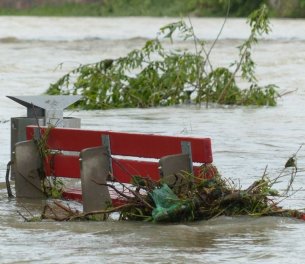* Photo: Pixabay
Click to read the article in Turkish
According to the data of the Directorate General of Meteorology, the average September temperature in Turkey, which had long been measured as 20.5, increased by 3.4 degrees to 23.9 last month.
While Turkey witnessed record-high temperatures in 93 centers in September, most of the extreme temperatures were recorded in the districts of Yumurtalık and Kozan in Adana, in the district of Boyabat in Sinop, in Osmaniye province and in the district of İslahiye in Antep province.
Speaking to the state-run Anadolu Agency (AA) regarding these figures shared by the Directorate, Prof. Ahmet Duran Şahin, the Head of İstanbul Technical University (İTÜ) Department of Meteorological Engineering, has noted that global climate change is undeniable.
'Drought is an insidious disaster'
Prof. Şahin has underlined that while climate focuses on regional atmospheric normals over years, weather means short-term atmospheric incidents. Against this backdrop, Şahin has informed the readers that around 30 years are needed to determine the climate of a given region.
"There are 360 months in 30 years," he has said, adding that monthly temperatures will not change the general behavior of climate in the short run.
Prof. Şahin has also underlined that over the past months, Turkey has gone through a serious period of drought and noted that "associating this issue directly with climate change means not knowing what climate is."
"While drought is a meteorological disaster witnessed throughout history, it is expected to increase in the process of global climate change.
"Drought is a sinister disaster; but after it started, some precautions can be taken as it shows signs. Its impacts can be minimized by these precautions."
'Water resources have diminished'
Prof. Şahin has indicated that Turkey was affected by the systems arising from North Africa and the Middle East in September and noted that the air masses coming from these regions are naturally hot and dry.
Saying that attributing the high temperatures witnessed in Turkey in September to climate change would fall short of fully grasping the issue, Şahin has added, "Even though the meteorological drought witnessed in August and September led to record-high extreme temperatures and diminished water resources, it is early to talk about an agricultural impact."
Reiterating that a direct parallel to be drawn between extremely hot weather and climate change would be an insufficient approach, Prof. Şahin has said:
"In the upcoming years, coupled with such heat waves, it is expected that the effects of climate change will be more deeply felt. What is recommended is to struggle against drought in the short- and medium-term and to struggle against climate change in the medium- and long-term." (TP/SD)











